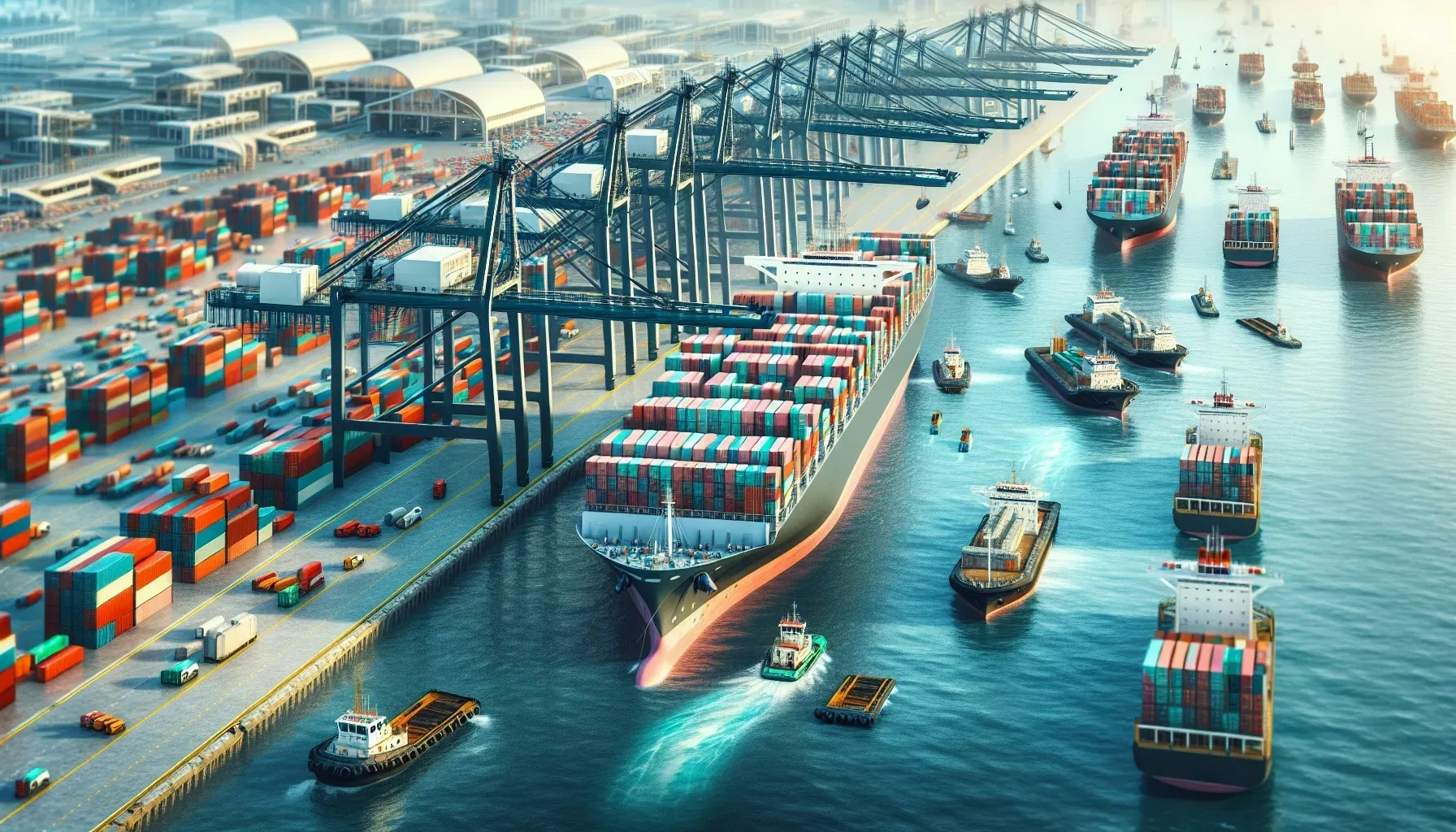Welcome to our deep dive into the world of maritime logistics and supply chain management. This blog post will explore the intricacies of these two intertwined fields, shedding light on their importance in global trade and economy. We'll delve into the challenges, solutions, and future trends that are shaping the industry.
The Vital Role of Maritime Logistics
Maritime logistics plays a crucial role in the global economy. It involves the planning, implementing, and controlling of the flow and storage of goods, services, and related information from the point of origin to the point of consumption. This process is carried out through various modes of transport, with the maritime sector being a significant player.
The maritime industry is responsible for transporting a vast majority of the world's goods. From the clothes we wear to the food we eat, most of the items we use daily have traveled across the seas. This sector's importance cannot be overstated, as it directly impacts global trade, economic growth, and development.
However, maritime logistics is not without its challenges. Issues such as port congestion, customs delays, and environmental concerns pose significant hurdles. These problems require innovative solutions and efficient management to ensure the smooth operation of the supply chain.
Understanding Supply Chain Management
Supply chain management (SCM) is another critical aspect of global trade. It involves the coordination and management of all activities involved in sourcing, procurement, conversion, and logistics management. SCM also includes the crucial components of coordination and collaboration with channel partners, which can be suppliers, intermediaries, third-party service providers, and customers.
In essence, SCM integrates supply and demand management within and across companies. It is a complex undertaking that requires strategic planning, efficient execution, and constant monitoring. The goal is to create net value, build a competitive infrastructure, synchronize supply with demand, and measure performance globally.
Supply chain management is also facing its set of challenges. Globalization, technological advancements, and customer demands for better and faster service are putting pressure on SCM. These challenges call for innovative solutions and a strategic approach to managing the supply chain.
The Intersection of Maritime Logistics and Supply Chain Management
Maritime logistics and supply chain management are two sides of the same coin. They are interdependent and crucial for the successful operation of global trade. The efficiency of the maritime logistics sector directly impacts the effectiveness of the supply chain, and vice versa.
The intersection of these two fields is where the magic happens. It's where goods are moved efficiently and economically from one point to another, ensuring that businesses operate smoothly and customers get what they need when they need it.
However, this intersection is also where the challenges lie. The complexities of managing a global supply chain and the intricacies of maritime logistics can create a perfect storm of problems. These can range from delays and increased costs to customer dissatisfaction and loss of business.
Challenges and Solutions in Maritime Logistics and Supply Chain Management
The challenges in maritime logistics and supply chain management are many. They include port congestion, customs delays, environmental concerns, technological advancements, and customer demands for better and faster service.
To tackle these challenges, the industry is turning to innovative solutions. These include the use of technology to improve efficiency, the adoption of green practices to reduce environmental impact, and the implementation of strategic planning to manage supply and demand.
For example, many companies are now using digital platforms to track and manage their supply chains. These platforms provide real-time information, allowing for better decision-making and improved efficiency. Similarly, the maritime industry is adopting greener practices, such as using cleaner fuels and reducing waste, to lessen its environmental impact.
Future Trends in Maritime Logistics and Supply Chain Management
The future of maritime logistics and supply chain management looks promising. Technological advancements are expected to continue driving efficiency and sustainability in these fields. For instance, the use of artificial intelligence and machine learning can help predict and manage supply and demand, while blockchain technology can improve transparency and security in the supply chain.
Moreover, the industry is also moving towards more sustainable practices. The push for greener maritime logistics and more sustainable supply chains is expected to continue, driven by both regulatory requirements and consumer demand.
However, the future also holds challenges. The ongoing digital transformation brings with it the risk of cyber threats. Similarly, the push for sustainability requires significant investment and a shift in traditional practices. These challenges will need to be addressed for the industry to continue its upward trajectory.
The Importance of Effective Management in Maritime Logistics and Supply Chain
The effective management of maritime logistics and supply chain is crucial for the success of global trade. It requires strategic planning, efficient execution, and constant monitoring. It also calls for innovative solutions to tackle the challenges that these fields face.
Effective management can help reduce costs, improve efficiency, and increase customer satisfaction. It can also lead to more sustainable practices, which is increasingly important in today's world.
However, effective management is not a one-size-fits-all solution. It requires a deep understanding of the intricacies of maritime logistics and supply chain management. It also calls for a willingness to adapt and evolve in the face of changing trends and challenges.
Charting the Course: Maritime Logistics and Supply Chain Management
Maritime logistics and supply chain management are vital cogs in the wheel of global trade. They face numerous challenges, from port congestion and customs delays to technological advancements and customer demands. However, with effective management and innovative solutions, these challenges can be overcome. The future holds promise, with technology and sustainability leading the way. As we chart the course for the future, the importance of maritime logistics and supply chain management remains clear: they are the backbone of our global economy.

